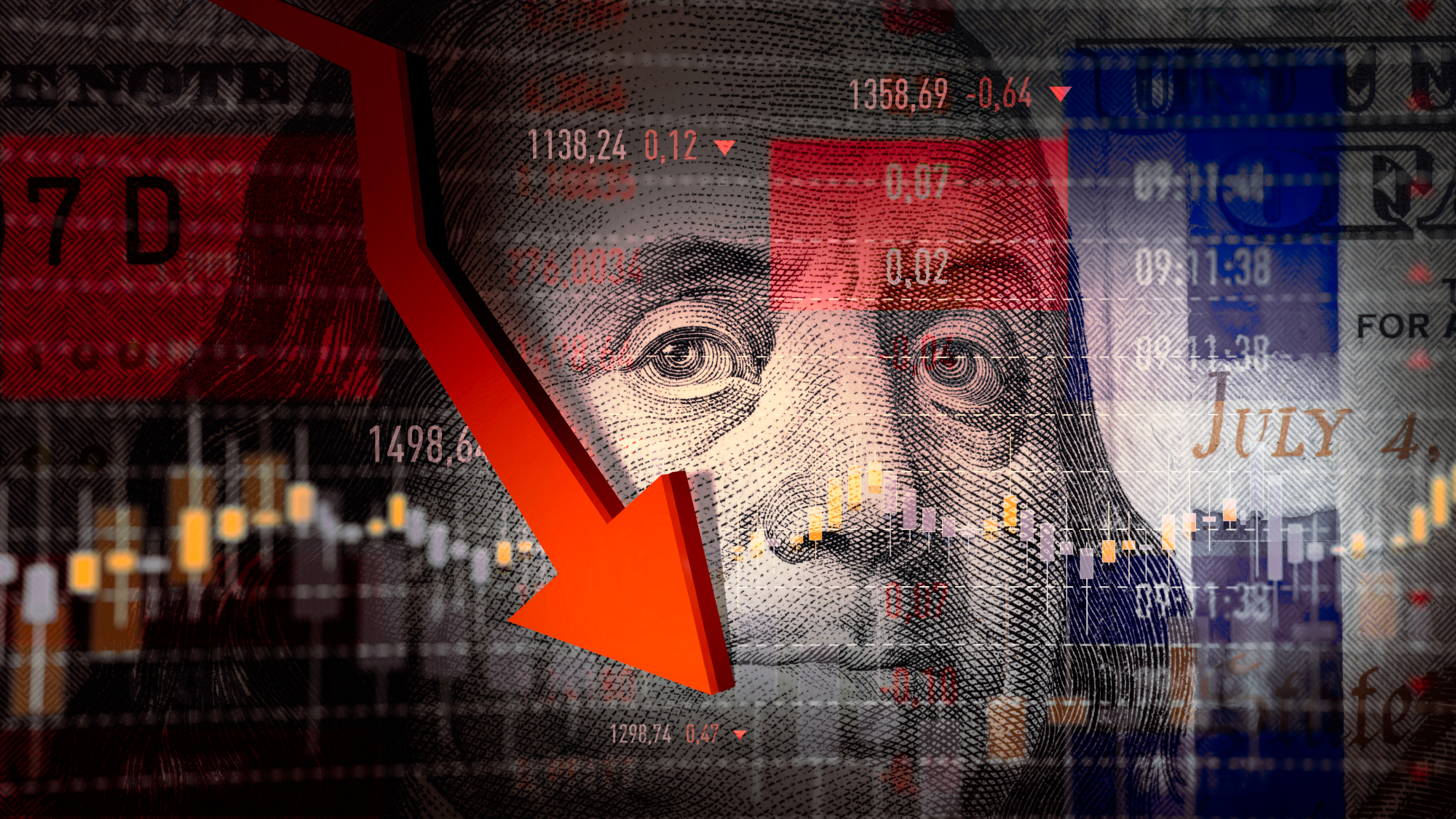Dollar faces historic slump as stocks hit new high
While stocks have recovered post-Trump tariffs, the dollar has weakened more than 10% this year


A free daily email with the biggest news stories of the day – and the best features from TheWeek.com
You are now subscribed
Your newsletter sign-up was successful
What happened
Major U.S. stock indexes Monday ended the first half of 2025 at new highs, erasing steep losses incurred after President Donald Trump announced unexpectedly aggressive tariffs in April. But the U.S. dollar has fared worse, suffering its "worst start to a year in more than half a century," The New York Times said.
Who said what
The S&P 500 and Nasdaq closed at record highs Monday and the Dow Jones Industrial Average edged up 0.6%, buoyed by a surge in AI investment and energy stocks, restrained inflation, a resilient job market and Trump's retreat from his most extreme tariffs. But while stocks have "recovered," the Times said, "the dollar has continued to slide," weakening more than 10% this year versus a basket of other major currencies.
The last time the dollar "weakened so much at the start of the year was 1973," after the U.S. made the "seismic shift" of delinking the dollar from gold, the Times said. "This time the seismic event" is Trump's trade war and "isolationist foreign policy." The combination of tariffs and Trump's pending jump in deficit spending have also made U.S. Treasuries, "traditionally a refuge for markets," volatile and "less attractive for overseas investors," Reuters said.
The Week
Escape your echo chamber. Get the facts behind the news, plus analysis from multiple perspectives.

Sign up for The Week's Free Newsletters
From our morning news briefing to a weekly Good News Newsletter, get the best of The Week delivered directly to your inbox.
From our morning news briefing to a weekly Good News Newsletter, get the best of The Week delivered directly to your inbox.
What next?
A weak dollar helps U.S. exporters, the Times said, but makes it "more expensive for Americans to travel abroad and less attractive for foreigners to invest in the United States," just as the government is "trying to borrow more money." Market analysts "see significant uncertainty for the second half of the year," The Washington Post said, unconvinced that the bull markets of 2023 and 2024 will continue for a third year.
A free daily email with the biggest news stories of the day – and the best features from TheWeek.com
Peter has worked as a news and culture writer and editor at The Week since the site's launch in 2008. He covers politics, world affairs, religion and cultural currents. His journalism career began as a copy editor at a financial newswire and has included editorial positions at The New York Times Magazine, Facts on File, and Oregon State University.
-
 The environmental cost of GLP-1s
The environmental cost of GLP-1sThe explainer Producing the drugs is a dirty process
-
 Nuuk becomes ground zero for Greenland’s diplomatic straits
Nuuk becomes ground zero for Greenland’s diplomatic straitsIN THE SPOTLIGHT A flurry of new consular activity in the remote Danish protectorate shows how important Greenland has become to Europeans’ anxiety about American imperialism
-
 ‘This is something that happens all too often’
‘This is something that happens all too often’Instant Opinion Opinion, comment and editorials of the day
-
 Currencies: Why Trump wants a weak dollar
Currencies: Why Trump wants a weak dollarFeature The dollar has fallen 12% since Trump took office
-
 Trump wants a weaker dollar, but economists aren’t so sure
Trump wants a weaker dollar, but economists aren’t so sureTalking Points A weaker dollar can make imports more expensive but also boost gold
-
 Did markets’ ‘Sell America’ trade force Trump to TACO on Greenland?
Did markets’ ‘Sell America’ trade force Trump to TACO on Greenland?Today’s Big Question Investors navigate a suddenly uncertain global economy
-
 Will Trump’s 10% credit card rate limit actually help consumers?
Will Trump’s 10% credit card rate limit actually help consumers?Today's Big Question Banks say they would pull back on credit
-
 How prediction markets have spread to politics
How prediction markets have spread to politicsThe explainer Everything’s a gamble
-
 What will the US economy look like in 2026?
What will the US economy look like in 2026?Today’s Big Question Wall Street is bullish, but uncertain
-
 TikTok secures deal to remain in US
TikTok secures deal to remain in USSpeed Read ByteDance will form a US version of the popular video-sharing platform
-
 Unemployment rate ticks up amid fall job losses
Unemployment rate ticks up amid fall job lossesSpeed Read Data released by the Commerce Department indicates ‘one of the weakest American labor markets in years’
